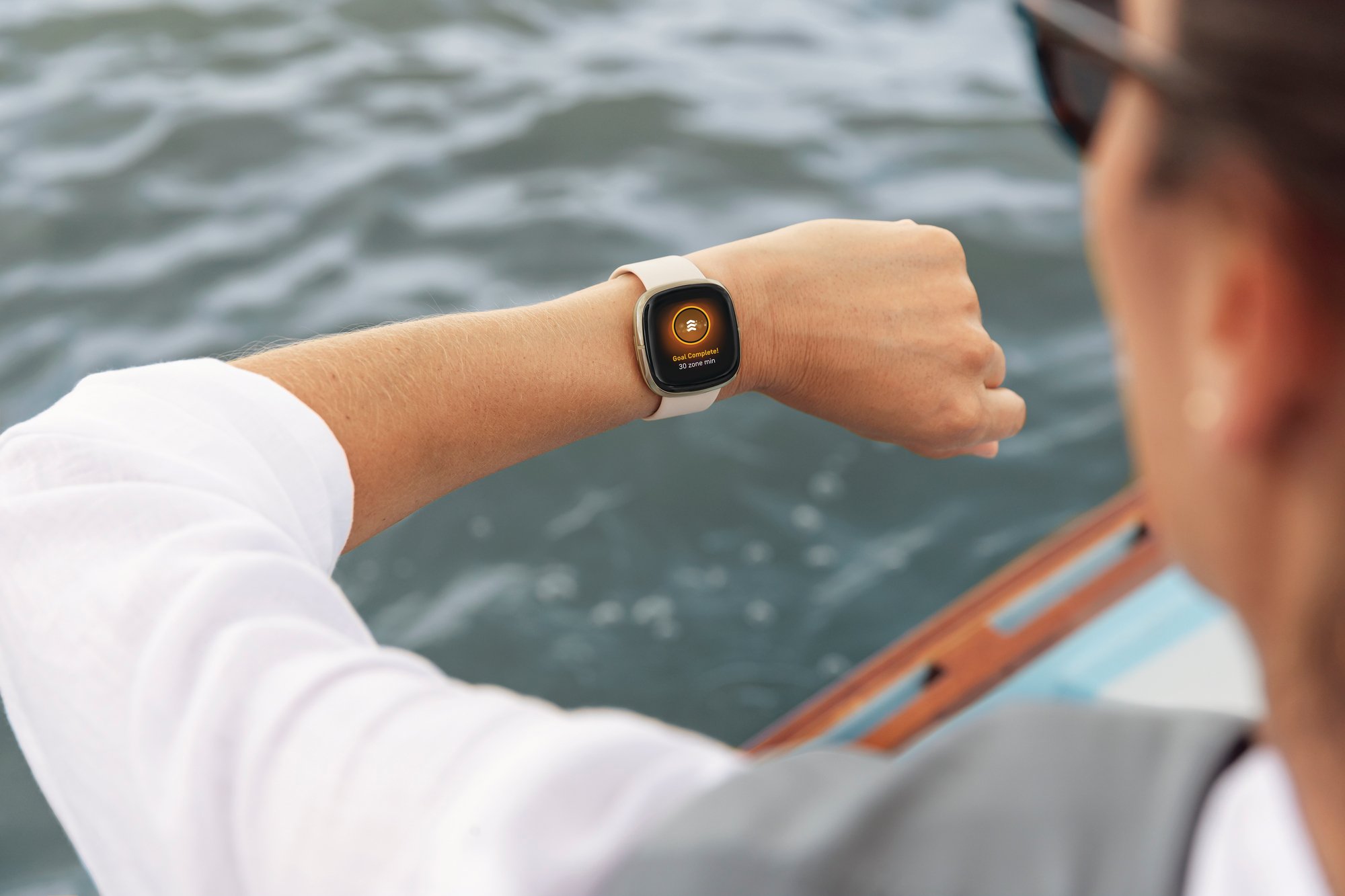
Image source: Fitbit.
Fitbit (FIT +0.00%) is making people more conscious about how many steps they take, but there's one study suggesting that it doesn't make a difference. A Duke-NUS Medical School professor in Singapore and his colleagues outfitted hundreds of adults in Singapore with Fitbit Zip.
The study -- bankrolled by Singapore's ministry of health and published in the Lancet Diabetes & Endocrinology trade journal -- involved splitting the 800 participants into four groups. One group's participants were given roughly $2.92 and a Fitbit Zip. Two of the groups were given $11 for every week that they managed between 50,000 and 70,000 steps, but one of those had to donate it to charity. The fourth group was simply given information about exercise but not Fitbit Zip.
It probably wasn't a surprise to see that those who got to keep the money experienced the biggest uptick in physical activity a few months later. However, after a year, 90% of the participants had given up on the fitness trackers. Another problematic nugget in the study is that while those wearing Fitbit Zip were more active than those without it, the higher level didn't produce improvements in weight loss or blood pressure.
It's only a study
The efficacy of fitness trackers when it comes to promoting more active lifestyles is naturally important. You wouldn't strap on a bracelet if it didn't do any good. As an employer, you also probably wouldn't offer to pay for Fitbit gadgetry for your employees -- the way that Target (TGT 1.74%) did for its staff of 335,000 last year -- if you're not getting the desired health benefits that will help the company reduce its health insurance costs.
Fitbit fought back. It could've poked holes at the study or wondered if stateside Fitbit users would respond the same way as Singapore-based participants. However, it decided to fight the study with a pair of studios that argue in favor of Fitbit.
One test saw employees at a company wearing Fitbit generate 24.5% less in health coverage coasts -- savings of $1,300 annually per participant on average -- than the control group. The other test was conducted by Dayton Regional Transit Authority. A pilot program showed favorable improvement in cholesterol and blood glucose levels. The findings were encouraging enough to justify outfitting its more than 600 employees. It has gone on to save $2.3 million a year in health coverage costs.
Fitbit could just be scratching the surface when it comes to corporate wellness initiatives. Target and Dayton RTA are the exceptions to the rule. However, if the favorable studies and costs savings bear out it's just a matter of time before more companies follow suit. This may result in more competitors, something that has already weighed on margins at Fitbit. However, a pie that is getting bigger is certainly better than the other way around.






